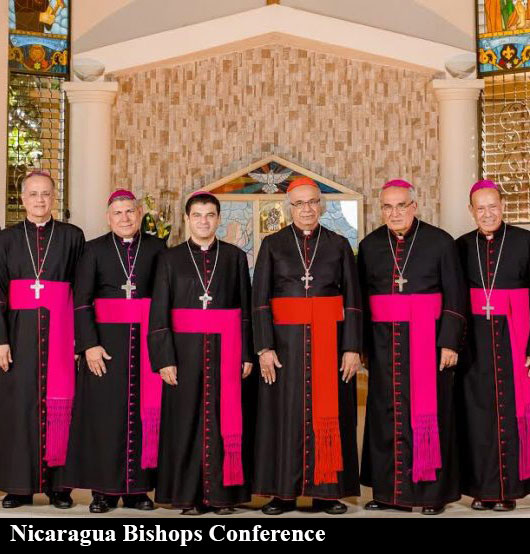NICARAGUA
Church mediated ceasefire breaks down as talks are suspended again
On Tuesday, 19 June Mgr. Silvio Báez, Auxiliary Bishop of Managua, announced that the National Dialogue table would not begin as planned. Talks will again be suspended until Ortega’s government presents to all the members of the Dialogue, the proof of having officially invited international human rights bodies, as agreed in the last session. “This government must demonstrate political will. It is not a game, it is a serious thing for the future of Nicaragua. One cannot continue to kill people”, said Mgr. Silvio Báez.
The talks, which began on 16 May, had been suspended for the first time on 23 May due to lack of consensus. On 7 June the bishops had issued a statement saying that dialogue could not resume while Nicaraguans continue to be denied the right to demonstrate freely and are “repressed and assassinated.” They stated that “process of democratisation of the country, which includes the agenda items presented to the President of the Republic by the Bishops’ Conference on June 7” will be among the conditions of continuing dialogue.”
The bishops of Nicaragua reconvened a national dialogue on 15 June to make known the response of president Daniel Ortega to the proposals he was given in order to end the crisis. The 15 June talks were overseen by Cardinal Leopoldo José Brenes Solorzano of Managua. Participants included representatives of the government, private businesses, students, universities, civil society, workers, rural residents, evangelical ecclesial communities, indigenous communities, and people of African descent.
After nearly two months of protests that resulted in the death of 170 people, the Nicaraguan government and opposition groups had agreed to a ceasefire last week following the resumption of talks mediated by the Nicaraguan bishops.
The ceasefire agreement called for the establishment of a Truth Commission, the presence of international observers from several groups and the removal of roadblocks. The stated objective of the Truth Commission is to “verify if an atmosphere of peace and security exists for all Nicaraguans,” to investigate all deaths and violence and to identify those responsible.
The ceasefire was not observed – at least 8 people were killed the next day in the capital, Managua. A family of six died in an arson attack on their home which Opposition groups said a pro-government militia was responsible for. Two more people in Managua were killed the same day in incidents “attributed to masked pro-government groups backed up by armed police.” Bishop Silvio José Báez Ortega, Auxiliary Bishop of Managua, said a 15-year-old altar boy had been shot and killed by security forces. In the past few days, at least five people died and more than seventy were injured due to the clashes with which riot police and paramilitaries, who had recently attacked the neighbouring municipality of Ticuantepe, took the city of Masaya, east of the capital of Nicaragua. Cardinal Leopoldo Brenes, Archbishop of Managua, asked the government and the police to stop the attacks against the people after being informed of the situation by the parish priests of Masaya.
When protests began on 18 April after Ortega announced social security and pension reforms, the Church in Nicaragua was quick to acknowledge the protestors’ complaints. The proposed changes were soon abandoned in the face of strong, widespread opposition, but protests intensified after more than 40 protestors were killed by security forces. Frequent, often fatal, clashes between government forces and protesters have continued. Barricades and roadblocks are now found throughout the country.
Bishops and priests across Nicaragua have been threatened and shot after trying to separate protestors and security forces and instigate peace talks.





